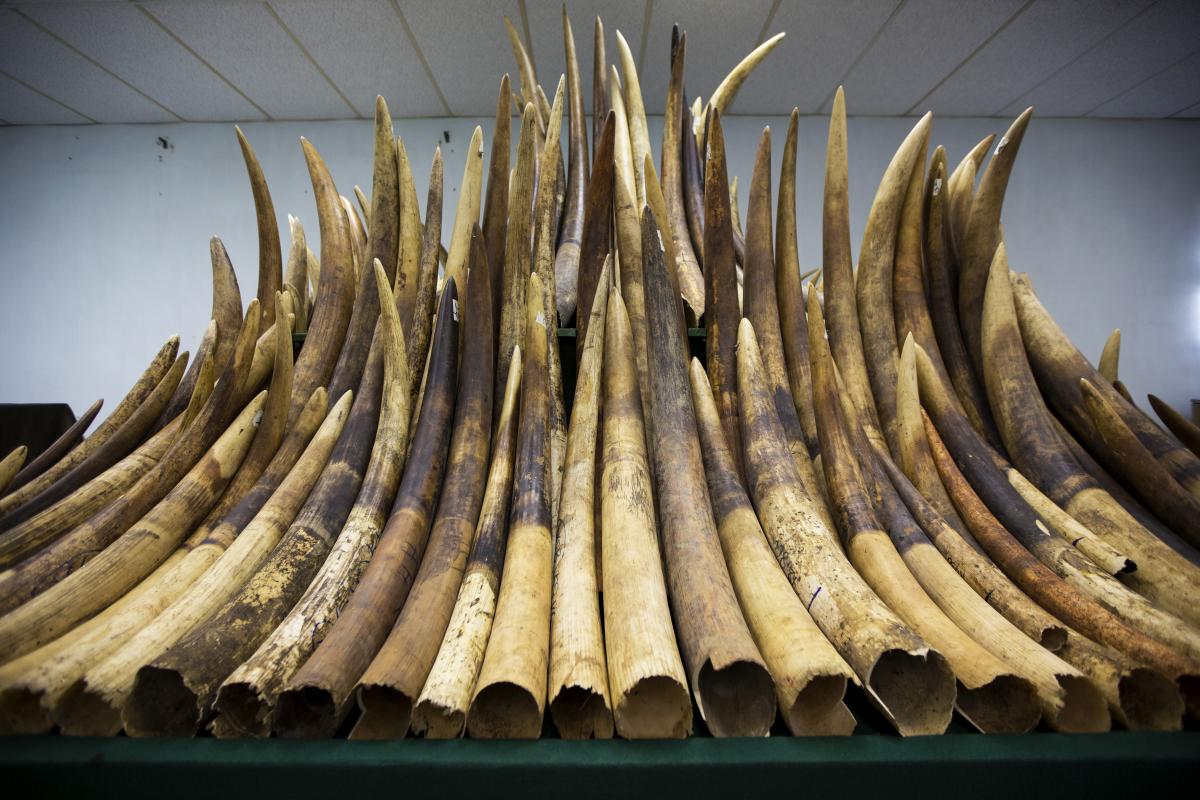
美国大学华裔教授走私象牙与犀牛角被捕

Lucrative trade: Philosophy professor Yiwei Zheng operated an online sales business out of his St. Cloud home selling items made of “ox bone.”
一名出生于中国的美国大学教授涉嫌从美国走私犀牛角和象牙往中国境内,于周二(3月31日)被美国警方逮捕。
美联社报导指,当地联邦法院在3月31日指控该名名叫“郑义伟”(音)的美国圣克劳德大学(St. Cloud University)哲学系教授,指其谋划犯罪、走私以及向有关部门作虚假陈述。
他还被指控违反联邦政府禁止非法获取、运输和买卖野生动物、鱼类和植物的《雷斯法案》(Lacey Act)。
美联社引述美国明尼阿波利斯《星论坛报》(Star Tribune)报导指,在中国上海长大、从1999年起在圣克劳德大学任教的郑某在周二当天被美国鱼类及野生动物管理局人员拘捕,并且已经交出护照,随后获准保释。
报导指,起诉书称郑某与两名共犯从2006年到至少2011年合谋走私黑市犀牛角及象牙,将相关濒危动物身体部分的加工制品从美国运送往中国。
据起诉书所指,犀牛被列为濒危特种,象牙贸易也被广泛禁止;相关物品的国际贸易自1976年起受到一项国际条约规管,条约所列明的动物和特种未经美国鱼类及野生动物管理局批准均不可运出美国国境。
而郑某在数年间用美国邮政服务将犀牛角和象牙制品运往中国,且过程中知道这是违法行为。
《中国日报》(China Daily)美国版则报导称,郑某除在大学任教以外,还从2010年开始在他所居住的圣克劳德经营一个名为“卧龙古董”(Crouching Dragon Antiques)的网上销售网站,主营古玩业务。
“卧龙古董的年营业额估算约38000美元,并在这个唯一的驻地聘用大约1名员工”,《中国日报》报导说。
在圣克劳德大学官方网站上,哲学系教授名单中有郑某的名字,而在其他教授通常放置个人简历的部分,郑某的相应链接则连接至了一张类似古董艺术品的照片,配图的文字则是“哲学教授郑义伟”。
St. Cloud State professor arrested, accused of smuggling ivory, rhinoceros horn
But to federal wildlife agents who had been watching him for years, Zheng was a secretive dealer in Chinese antiquities who profited from an international black market for carved ivory and other rare objects.
Zheng, a naturalized U.S. citizen who grew up in Shanghai, China, has operated an online sales business out of his St. Cloud home called Crouching Dragon Antiques since 2010, according to court documents. Often using eBay as his marketing base, Zheng offered wildlife specimen parts and carved objects, describing them as made from “ox bone.”
But agents suspected they were actually made from carved elephant ivory that Zheng was smuggling to China, according to a federal search warrant.
The indictment says that Zheng also illegally imported specimens from endangered species into the U.S. from China and made false statements to agents about selling rhino horns.
Agents say at one point Zheng told them that he sold the horns to a man at a McDonald’s restaurant in St. Cloud, but in fact he illegally exported the horns to a co-conspirator in China, according to the indictment.
While the dollar value of the items was not disclosed Tuesday, federal agents said the amount was significant and that it is the first such case in Minnesota, sending a message that they are on the lookout for illegal international traders who profit from protected species.
“We take one person out and we get the benefit of deterrence,” said Patrick Lund, special agent in charge of the wildlife service’s St. Paul office.
“It’s not like a drug dealer where one is taken out and another steps in. It requires specialized knowledge, and you’ve got to know the trade.”
St. Cloud State spokesman Adam Hammer said Zheng, who has taught there since 1999, is expected to resume his classes this week and will be treated with due process pending the outcome of his court case.
Rampant poaching
Since 2011, federal agents have been conducting a national crackdown — Operation Crash — targeting traffickers in what they say is a multibillion-dollar international poaching network that is decimating iconic species in Africa and Asia.
The operation was given its name because “crash” is the term used to describe a herd of rhinos. Lund said Zheng’s case was developed independent of the national investigation.
Elephant ivory and rhino horn have been internationally regulated since 1976, with more than 173 countries signing a treaty to protect imperiled wildlife, fish and plants.
In the past five years, rampant poaching across Africa and Asia has led to skyrocketing prices in the international black market for ornamental carvings on the tusks and rhino horns, as well as for powdered horn that is reputed in some cultures to have medicinal purposes, ranging from fighting cancer to enhancing sexual potency in men.
The market is so lucrative that it has drawn organized crime groups that control poaching operations from the field to final sales — providing everything from weapons to GPS tracking systems to logistical support for smuggling tusks and horns across international networks.
“Trafficking in rhinoceros horns and elephant ivory fuels the market for ivory jewelry and other goods that threaten these vulnerable species worldwide,” said assistant U.S. Attorney Laura Provinzino. “Cases like this help to prevent the extinction of the elephant and rhino species.”
Suspicious rhino horn cup
There are no records of Zheng or his business obtaining an import-export license, or declaring any wildlife specimens upon import from any foreign country, according to the warrant.
Zheng’s trade in artifacts has drawn the interest of federal authorities since at least 2011, when he tried to smuggle at least seven carved ivory specimens out of O’Hare International Airport in Chicago to China, Lund said. That same year, wildlife agents in Memphis learned from a FedEx Trade Networks unit that Zheng had shipped a suspicious package from France to the United States, according to court records.
Agents were alerted because the package lacked the proper documentation for import-export purposes, records show. An agent found that Zheng had shipped a libation cup made from Javan rhino horn that he’d bought from Christie’s of France, in Paris, and that he had not properly accounted for how he acquired and shipped that item to the U.S., according to court records. Javan rhinos are near extinction and libation cups carved from their horns are in great demand in China, authorities say.

